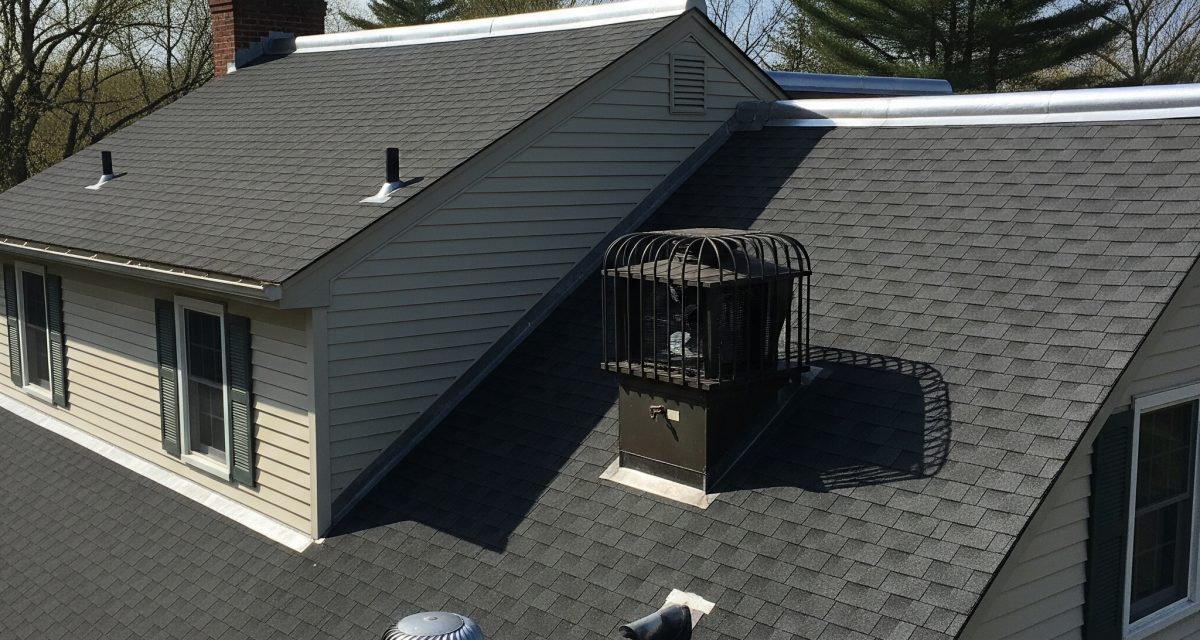When most homeowners think about roof maintenance, they focus on shingles, gutters, and flashing. But there’s one critical element that often goes unnoticed—roof ventilation. Without proper airflow, even the most well-built roof in New Jersey can suffer from moisture buildup, heat damage, and high energy bills.
At All State Roofing & Chimney, we’ve seen the damage poor ventilation can cause. In this post, we’ll explain why roof ventilation is essential for NJ homes, outline the types of ventilation systems available, and offer tips for choosing the right solution for your property.
Need help now? Call us at tel:8622957864 or get a free roof ventilation quote today.
What Is Roof Ventilation?
Roof ventilation is a system that allows air to flow naturally through your attic space, regulating temperature and moisture. A well-designed ventilation system includes both intake vents (usually placed at the eaves or soffits) and exhaust vents (placed near the roof ridge).
The goal is simple: let cool, fresh air in—and let hot, moist air out.
Why Roof Ventilation Matters in New Jersey
New Jersey’s climate includes cold, snowy winters and hot, humid summers—making ventilation especially important for local homeowners. Without it, your attic can trap excess heat and moisture, leading to a range of problems including:
1. Ice Dams in Winter
When warm air from your home rises into an unventilated attic, it melts the snow on your roof. The water runs down and refreezes at the eaves, creating ice dams. These dams can force water under your shingles and into your home, causing serious damage.
2. Mold and Moisture Damage
Poor ventilation traps humid air in your attic, which can lead to mold, mildew, and rot. This affects insulation, roof decking, and indoor air quality.
3. Shorter Roof Lifespan
Excessive heat and moisture weaken roofing materials over time, causing premature deterioration of shingles, flashing, and underlayment.
4. Higher Energy Bills
An unventilated roof acts like a heat trap. During summer, it can drive up cooling costs as your AC works overtime. In winter, heat loss can increase your heating bills.
5. Voided Warranties
Many roofing manufacturers require proper ventilation to keep warranties valid. Failing to meet these standards could cost you if something goes wrong.
Benefits of Proper Roof Ventilation
Investing in roof ventilation brings both short-term and long-term advantages:
-
Extends the life of your roofing system
-
Improves energy efficiency
-
Prevents moisture-related damage
-
Enhances indoor air quality
-
Reduces the risk of ice dams and mold growth
Types of Roof Ventilation Systems
There are several types of ventilation systems used in New Jersey homes. The best choice depends on your roof design, attic size, and climate conditions.
1. Ridge Vents
Installed along the peak of the roof, ridge vents allow hot air to escape evenly across the entire roofline. They work best when paired with soffit vents.
2. Soffit Vents
Located under the eaves, soffit vents draw in fresh, cool air. When combined with ridge vents, they create a continuous airflow that’s both efficient and effective.
3. Gable Vents
Installed on the exterior walls at the roof peaks (gable ends), these vents allow air to enter and exit the attic. They’re typically used in homes without ridge or soffit systems.
4. Roof Louvers (Box Vents)
These small, square vents are installed near the ridge and provide passive exhaust. Multiple units are often needed to be effective.
5. Powered Attic Fans
Electric or solar-powered fans actively draw hot air out of the attic. These are useful in homes with limited natural ventilation options, but should be carefully sized to avoid drawing in conditioned air from the house.
Choosing the Right Roof Ventilation for Your NJ Home
The right ventilation system depends on several factors:
-
Age and size of your roof
-
Pitch and shape of your roof
-
Existing ventilation setup
-
Insulation levels and attic condition
At All State Roofing & Chimney, we perform a full ventilation audit before making any recommendations. We ensure every home gets a customized solution that’s both code-compliant and energy-efficient.
Signs Your Roof Ventilation May Be Inadequate
Wondering if your home is properly ventilated? Here are some warning signs:
-
Frequent ice dams in winter
-
Excessively hot attic in summer
-
Mold or mildew in the attic
-
Peeling paint or warped wood in the attic
-
High cooling and heating bills
-
Curling shingles or roof rot
If you notice any of these issues, don’t delay. A ventilation upgrade may save your roof—and your wallet.
DIY vs. Professional Installation
While some homeowners attempt to add ventilation themselves, improper installation can cause more harm than good. For example, adding too many exhaust vents without proper intake can lead to negative pressure and draw moisture from the home into the attic.
A professional roofing contractor like All State Roofing & Chimney will:
-
Calculate the correct ventilation ratio (typically 1:300 or 1:150 depending on insulation)
-
Install vents properly without compromising the roof’s waterproofing
-
Ensure compliance with New Jersey building codes
-
Offer a warranty on materials and workmanship
Call us at (862) 295-7864 to discuss your roofing and ventilation needs, or
Request a free inspection and quote today
Final Thoughts
Proper roof ventilation in NJ homes is essential—not optional. Whether you’re planning a new roof, noticing signs of poor ventilation, or looking to lower your energy bills, now is the time to take action.
At All State Roofing & Chimney, we specialize in ventilation systems tailored for New Jersey’s weather, homes, and roofing types. We provide honest inspections, expert guidance, and top-tier installation you can trust.
Let’s Keep Your Roof Breathing Year-Round
Call All State Roofing & Chimney today at tel:8622957864(862) 295-7864
Serving homeowners across New Jersey
Schedule your free estimate online
